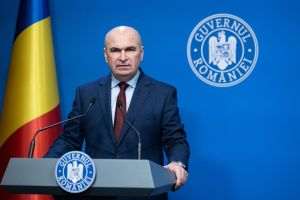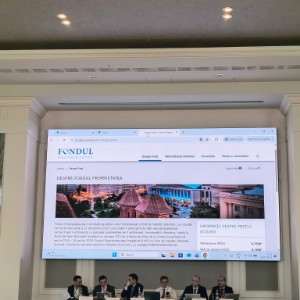
Fed up with subsidizing the commercial banks with their own money, the Swiss, mobilized through the "Sovereign Money" initiative, have proposed the organization of a Referendum which will be held on Sunday, June 10th 2018 - is a historical referendum, revolutionary for the banking industry, of international resonance -, by which the initiators want to amend the Constitution, which would impose to the commercial banks to grant loans only within the limits of the bank's money, forbidding them to issue scrip money and ensuring the monopoly of the Confederation (of the Swiss state) on issuance of money free of debt.
According to the supporters of the initiative, the money is issued as debt; the money supply increases through receivables, when the commercial banks borrow from the central banks and when the governments, producers or consumers borrow from the commercial banks.
The banknotes and metallic coins are issued by the government, but only represents 10% of the money in circulation, with the rest being scrip money, issued by the commercial banks.
The supporters of the initiative consider that the banking system unduly benefits from gains on the loans granted to the state, when the state itself could issue the money it needs, without paying any interest to anybody.
Carrying their opinion over to the Romanian realities, we note that the commercial banks lend money to the Government, sometimes using money they borrowed themselves from the National Bank.
When the Government pays back the debts, it pays interest to the banks (which is already stipulated in the Budget). But the budget is collected from the taxpayers, meaning that the commercial banks are collecting money from all the citizens, through interest, even if some of them don't have an account open with any bank whatsoever.
NOTE 1
The Romanian banking system includes 35 banks, for a population of 19.6 million people, compared to the Swiss banking system, which has 261 banks, for a population of 8.5 million people.
In Romania, the foreign capital is present in 30 banks (out of the total of 35, a proportion of 85%), whereas in Switzerland there are only 107 banks with foreign capital (out of the total of 261, a proportion of 40%). See the insert below "The Swiss banking system".
So in brief: for the service of transferring the money from the National Bank of Romania to the government (two state owned entities), the commercial banks collect money from all the citizens of the country (the money which is collected from them by the Ministry of Finance).
Of course, technically, the transfer of money between two state owned entities could be done at the simple touch of a button and without any interest, like it used to be done in the communist economy.
In other words, without any waste of the citizens' money.
The current law does not allow that. And it doesn't for reasons of political prophylaxis - to prevent the Government from opening the money hose full power and flood the economy irresponsibly with money that doesn't cost it anything.
Thus, banks collect interest from citizens, to serve as an obstacle to the potential irresponsibility of the government.
It is a political price, paid to the commercial banks by the citizens.
NOTE 2
Since the interest paid on the loans contracted by the Government from the commercial banks has a political connotation, the configuration of the problem, in Romania, is supplemented by the fact that bank capital is overwhelmingly foreign, (over 90%), thus, disregard the intermediary actions, the simplified process sees Romanian citizens as quasi-exclusively paying interest to foreign capital, in order to prevent their own Government from abusing them financially. When looking at it like this, the process becomes a political option worthy of examination.
Some Swiss are no longer willing to tolerate the systemic enrichment of bankers, to the detriment of the population, through this kind of businesses that make no contribution to society, based exclusively on the privileges that have been granted to banks under the current financial and economic system that is politically consecrated and secured.
They say that the system generates various significant negative effects, such as inflation (in the case of commercial banks, "the more money, the greater the profits"), in fact a reproduction from within of the crisis system, given that the loans have a procyclical nature.
Some people say that the interest rate, as the price of loans, is calculated as the sum of the price of money and the price of the risk of lending, affecting all the prices in the economy; whether they are the price of bread, milk, eggs, phone calls, trips, cars, homes or lathes, locomotives and Swatch watches - in most cases, the weight of the banking risk amounts to 40-45%.
The Swiss haven't invented the topic of this referendum themselves, rather around the subject, for hundreds of years theoretical battles have been wages (and are still being waged), in fact some people claim that this is the reason why American president John F. Kennedy was assassinated (see the article "200 DE ANI DE LUPTĂ / Năzuinţa la reformarea sistemului bancar, 1824 - 2018 // 200 YEARS OF STRUGGLE - The desire to reform the banking system, 1824 - 2018 https://www.bursa.ro/200-de-ani-de-lupta-nazuinta-la-reformarea-sistemului-bancar-1824-2018-347720&s=banci_asigurari&articol=347720.html).
On March 5th 2018, the Swiss National Bank (SNB) announced its opposition to the "Sovereign money" initiative (see NOTE 3), a clarification followed, on May 3rd, by a speech of Thomas J. Jordan, the president of the Council of the Swiss National Bank, who claims that the initiative is promoting an experiment which is not necessary, but dangerous.
NOTE 3
I hereinafter reproduce the text posted by the Swiss National Bank (https://www.snb.ch/ en/mmr/reference/media_dossier_vollgeld_kurz/source/media_dossier_vollgeld_kurz.en.pdf):
"Why the Swiss National Bank opposes the "Sovereign Money" initiative / Zurich, 5 March 2018
The initiative "For a currency protected against the crisis: money issued only by the Swiss National Bank (the Vollgeld initiative) " - the Referendum of June 10 2018
The SNB is opposing the initiative, as is the Federal Council.
Here we have the stance of the SNB at a glance:
- Switzerland's financial system has a proven expertise and a new relevant regulation has made it even safer.
- There is no fundamental problem that can make a revision necessary. A radical revision of the Swiss financial system is unacceptable and would draw major risks.
- Today's decentralized system is heavily customer focused, as well as efficient. The competition between banks ensures favorable interest rates and high quality, modern and low cost services.
- The SNB has the necessary tools to direct the interest rate level and therefore the money supply, thus carrying out its mandate to ensure price stability.
- The proposed reform would politicize and complicate the implementation of the monetary policy system.
- Today, the SNN can guide the demand for money and credit through the interest rates. The guiding of the money supply is practiced by major central banks and has proved its usefulness as a strategy. Abandoning the current system of guiding the interest rate in favor of monetary guiding would be a useless and regressive step.
- The issuing by the central bank of "debt free money", which the initiative wants, could expose the SNB to political ambitions. It could also lead to a concentration of responsibilities with the Central Bank, which could endanger the independence of the monetary policy and the carrying out of the mandate of the SNB.
- The "debt free" money issued by the central bank would erode the balance sheet of the SNB and would weaken confidence in the Swiss Franc.
- A sovereign monetary system cannot prevent the credit cycles and asset bubbles. Improving the instruments available to ensure financial stability include capital requirements and the "too big to fail" regulations.
- A sovereign monetary system cannot fulfill its promise to guarantee the safety of the financing system and to ensure a greater prosperity through the money of the central bank issued directly."
It is very likely that the Referendum will not be successful, as shown by a poll conducted by GfS Bern, on May 4th, on a sample of 563 citizens (declared error margin is 2.9% and the potential attendance is 40-42%, according to http://www.gfsbern.ch/ de-ch/Detail/vorkampagnen-neu-im-zeichen-des-behoerdenmisstrauens):
No: ... 49%
Yes: ... 35%
Undecided: ... 16%
Total: ... 100
In a recent report, GfS Bern writes that "if the decision on the topic of "Sovereign Money" will have already been made on May 20, then the Referendum will certainly fail", because the citizens' options follow the classic tendency of aligning with the officials' opinions.
On the other hand, the initiators' optimism is being boosted by the fact that the attitude on the matter of the citizens is changing as they go into its details. It is the reason why we are inviting you, dear reader of the BURSA newspaper, to participate in the poll organized by us, on the BURSA website, on the same issue as the Swiss referendum, if it were to hypothetically be applied in Romania:
Do you accept the initiative "For a currency protected against the crisis: money issued only by the National Bank?"
Yes% or No%.
Vote on www.bursa.ro
















































